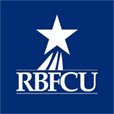Preparing Your Finances to Buy a Home
Even if you think you’re years away from buying a home, it’s never too early to start preparing. For many, a home purchase is the biggest financial move in their life, and there are a lot of challenges that only can be successfully met with hard work, time, sacrifices and diligent planning.

Forbes recommends to start early, and to always keep in mind conventional savings tips that can be used toward a down payment.
But a down payment is only part of the process. A homebuyer also pays closing costs (attorney’s fees and money to pay for the title, among other things) and home inspection costs, all of which can add an extra $5,000 before you sign a mortgage. There’s also the ongoing cost of insurance so you can protect your new home from fire, hazards and possibly flood.
Credit Karma gives advice on getting your finances ready to buy a house, which includes:
Building your credit score
You can count on the fact that mortgage lenders will check your credit to assess your history of paying your debts and to look at how much outstanding debt you have. So, build up more than a year’s worth of good credit practices, such as paying your bills on time, using less than 30% of your available credit (hint, don’t come close to maxing out your credit cards), refraining from opening new credit accounts, etc. A higher credit score can help you get better mortgage terms, and that can mean thousands of dollars in savings over the life of a mortgage. Better credit makes it easier to get a pre-approval for a mortgage.
Funding a bigger down payment
This usually translates into a lower interest rate for your home loan. A down payment of at least 20% of the purchase price will qualify you for a loan without having to pay PMI — private mortgage insurance. This cost, usually an annual charge of 0.5% to 1.5% of the loan, does not go toward paying off your loan. It’s directed to an insurance underwriter to protect the lender in case you default on the loan. It can add up to thousands of dollars. If you can't reach a 20% down payment, check to see if you qualify for special first-time homebuyer programs that offer mortgage loans with little or no money down. Those loans can provide for a low down payment, or no down payment at all.
Reducing your debt-to-income ratio (DTI)
Lenders want this figure to be less than 43%. Your DTI is calculated by adding all your current monthly debt payments (student loans, credit cards and other loans) plus your proposed mortgage principal, interest, taxes and insurance payments, and then dividing that amount by your income before taxes and other deductions. This is a regulatory requirement put in place to protect lenders and buyers. One of the few ways you can possibly get around this is to have high cash reserves. Commit to paying down your debt or to find some way to increase your income.
To help you to move on to those big-picture tasks, here’s a quick checklist of things lenders look at when assessing your finances:
- Credit scores and credit history
- Down payment amount
- Lists of assets (stocks, real estate, etc.)
- Income and employment history
- Tax returns
- Banks statements for two to three months
- Desired loan amount compared to value of home
- Total debt compared to income; your debt to income ratio
- Rental history (if you’re currently renting or have rented in the past)

.jpg?sfvrsn=23ceb5a8_1)

.jpg?sfvrsn=53ffb2a8_4)